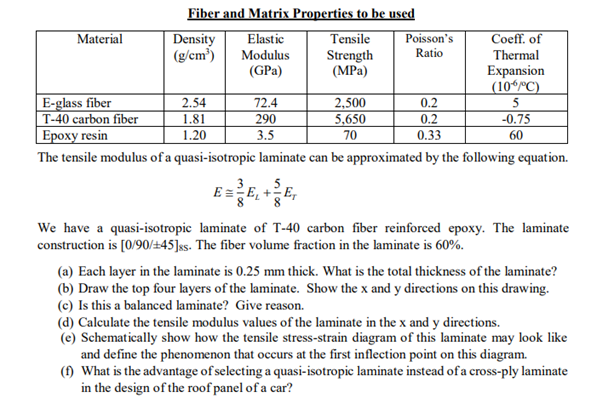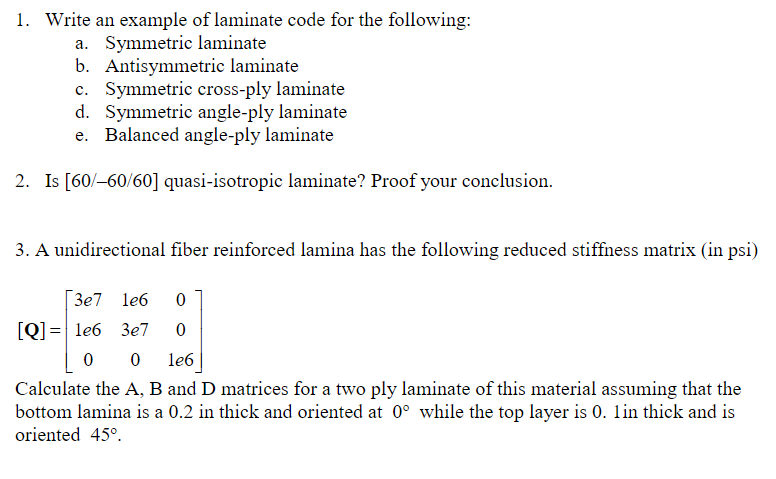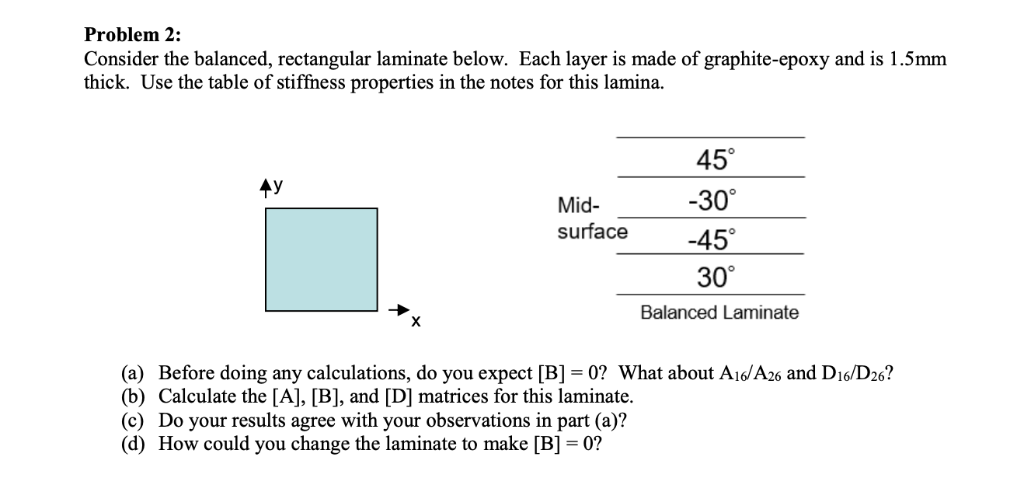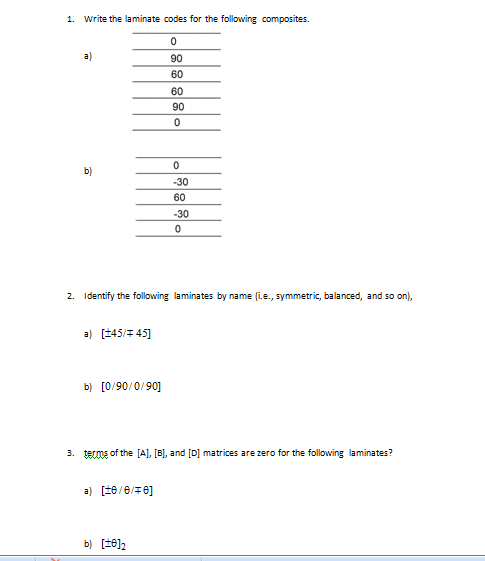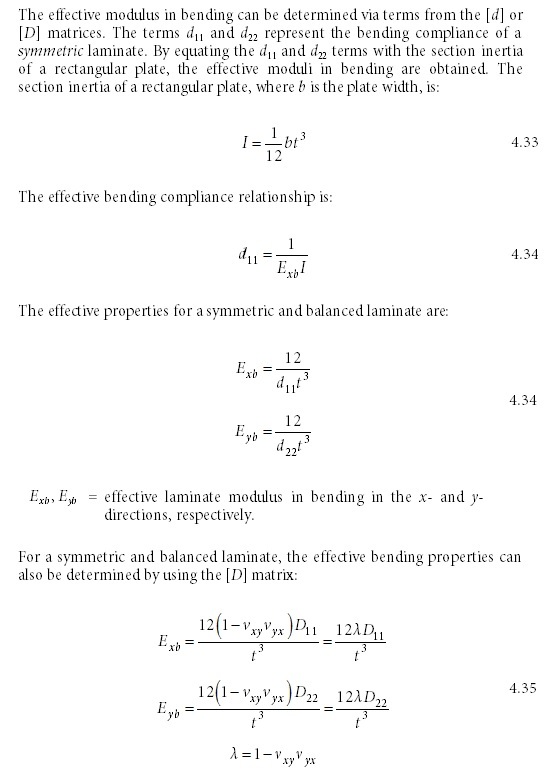Balanced Laminate B Matrix

No shear extension coupling stacking sequence does not affect a matrix both laminates above have same tensile properties same a matrix 0 90 90 0 0 90 90 0 looks like i beam when bent looks not like i beam when bent on this axis.
Balanced laminate b matrix. An example of a balanced laminate is 0 45 45 90 45 45 0 whereas an unbalanced laminate would be 0 45. The laminate is equally stiff in the transverse direction and therefore a 22 a 11. If the laminate is not balanced and symmetric macro warpage will certainly occur during cool down. The rectangles locate the a 16 and a 26 stiffness coefficients for each laminate.
Like angle ply laminates for balanced laminates a 16 a 26 0 and d 16 0 d. The a matrix terms shown in figure 2 define an unbalanced laminate. Balanced laminate balanced laminate a composite laminate in which all laminate at angles other than 0o and 90o occur only in pairs not necessarily adjacent and are symmetrical around the centerline. Consequently the laminate extension and bending are uncoupled.
This not only implies a11 a22 a16 a26 and a66 a11 a12 2 but also that these stiffnesses are independent of the angle of rotation of the laminate. Contrary to angle ply laminates which are restricted to one pair of matched angles balanced laminates can contain several pairs including 0 and 90. Called quasi isotropic and not isotropic because b and. In a balanced laminate the laminae with positive angles are balanced by equal laminae with negative angles.
For a symmetric laminate b 0 always for balanced laminates a 16 a 26 0 i e. They indicate that for a balanced laminate both the a 16 and a 26 terms are equal to zero. A laminate is called quasi isotropic if its extensional stiffness matrix a behaves like that of an isotropic material. In balanced laminates for each off axis layer with a positive orientation angle there is an identical.





